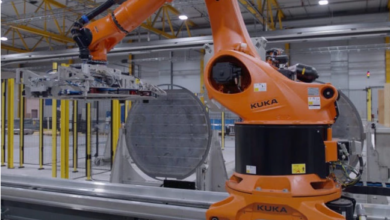BHC – Joining Belgian forces on clean hydrogen to excel in Europe and beyond

Regional cluster organizations WaterstofNet and Cluster Tweed today launched the Belgian Hydrogen Council (BHC) to consolidate and strengthen Belgium’s position in Europe and on the global stage as a pioneering hub of excellence for clean hydrogen.
WaterstofNet and Tweed have both been coordinating their regional hydrogen clusters in Flanders and Wallonia respectively for several years and are now jointly establishing a national hydrogen council that aims to transcend the various political levels in our country.
The Belgian Hydrogen Council will take on important tasks such as the promotion of the Belgian hydrogen industry at home and abroad, as well as advise policymakers on the rollout of their regional and federal hydrogen strategies.
Belgium has led a pioneering role in hydrogen technology development. This has been possible thanks to suppliers and the country’s ports as a unique geographic location for the import and consumption of hydrogen, and governments aiming for hydrogen leadership in Europe. Creating a Belgian Hydrogen Council is crucial in consolidating and strengthening this leadership in hydrogen.
The Board of the Belgian Hydrogen Council is formed by eight companies, covering the hydrogen value chain. These companies were elected among all cluster members and will represent the Belgian Hydrogen Council for the coming two years: ENGIE (production), John Cockerill (technology), Fluxys (infrastructure), Port of Antwerp-Bruges (ports & import), ArcelorMittal (industry), INEOS (industry) Virya Energy (mobility) and Sirris (research).
Tinne Van der Straeten said, “Our country’s ambition is to become Europe’s hydrogen hub. With renewable hydrogen, we are strengthening our energy independence and greening our industry. Our unique location, at an energy crossroads in the middle of several industrial clusters, makes us an ideal import and transit country for renewable hydrogen. In addition, our companies are pioneers in hydrogen technology and we have one of the most developed hydrogen networks in the world. The Belgian Hydrogen Council is strengthening cooperation at home to ensure Belgium is a leader in the energy transition.”
Jo Brouns commented, “Flanders wants to be a European leader in hydrogen and sustainable hydrogen technologies. We do this together with the industry and knowledge institutions, where we also work well together with WaterstofNet and the Waterstof Industrie Cluster. That is why I also support the initiative to join forces with other Belgian clusters. In this way, we can strengthen collaborations, consult with our neighbouring countries and together weigh more on European policy. This cooperation is thus again an added value for Flanders.”
